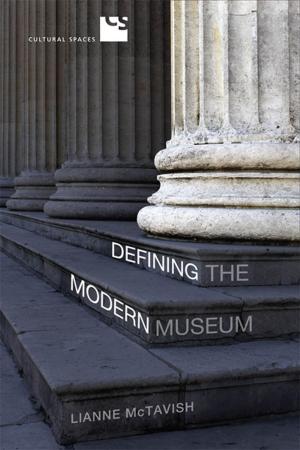Ficino in Spain
Fiction & Literature, Literary Theory & Criticism, European, Spanish & Portuguese, Nonfiction, History, Renaissance| Author: | Susan Byrne | ISBN: | 9781442624085 |
| Publisher: | University of Toronto Press, Scholarly Publishing Division | Publication: | July 27, 2015 |
| Imprint: | Language: | English |
| Author: | Susan Byrne |
| ISBN: | 9781442624085 |
| Publisher: | University of Toronto Press, Scholarly Publishing Division |
| Publication: | July 27, 2015 |
| Imprint: | |
| Language: | English |
As the first translator of Plato’s complete works into Latin, the Florentine writer Marsilio Ficino (1433–99) and his blend of Neoplatonic and Hermetic philosophy were fundamental to the intellectual atmosphere of the Renaissance. In Spain, his works were regularly read, quoted, and referenced, at least until the nineteenth century, when literary critics and philosophers wrote him out of the history of early modern Spain.
In Ficino in Spain, Susan Byrne uses textual and bibliographic evidence to show the pervasive impact of Ficino’s writings and translations on the Spanish Renaissance. Cataloguing everything from specific mentions of his name in major texts to glossed volumes of his works in Spanish libraries, Byrne shows that Spanish writers such as Miguel de Cervantes, Lope de Vega, Bartolomé de las Casas, and Garcilaso de la Vega all responded to Ficino and adapted his imagery for their own works. An important contribution to the study of Spanish literature and culture from the fifteenth to the seventeenth centuries, Ficino in Spain recovers the role that Hermetic and Neoplatonic thought played in the world of Spanish literature.
As the first translator of Plato’s complete works into Latin, the Florentine writer Marsilio Ficino (1433–99) and his blend of Neoplatonic and Hermetic philosophy were fundamental to the intellectual atmosphere of the Renaissance. In Spain, his works were regularly read, quoted, and referenced, at least until the nineteenth century, when literary critics and philosophers wrote him out of the history of early modern Spain.
In Ficino in Spain, Susan Byrne uses textual and bibliographic evidence to show the pervasive impact of Ficino’s writings and translations on the Spanish Renaissance. Cataloguing everything from specific mentions of his name in major texts to glossed volumes of his works in Spanish libraries, Byrne shows that Spanish writers such as Miguel de Cervantes, Lope de Vega, Bartolomé de las Casas, and Garcilaso de la Vega all responded to Ficino and adapted his imagery for their own works. An important contribution to the study of Spanish literature and culture from the fifteenth to the seventeenth centuries, Ficino in Spain recovers the role that Hermetic and Neoplatonic thought played in the world of Spanish literature.















